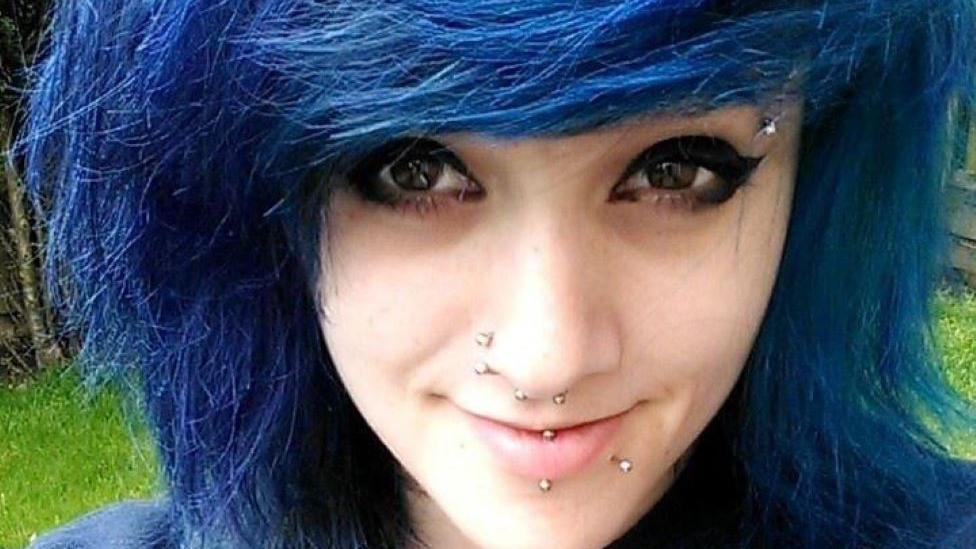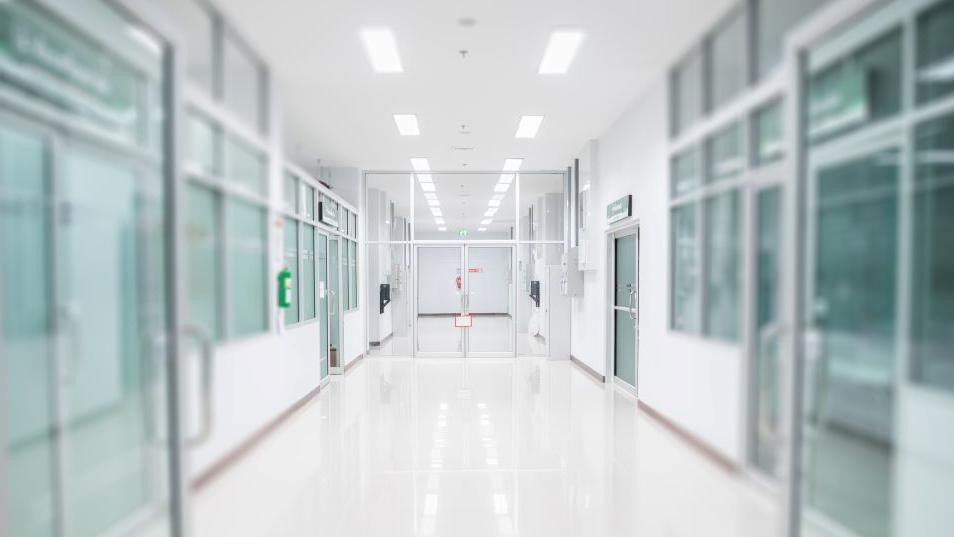'Being far away from family made recovery harder'

Charlotte, from York, was sent for mental health treatment in Manchester when she was 13
- Published
A woman separated from her family when she was treated at a psychiatric unit more than 100 miles (161km) from home as a child has said she is "heartbroken" that the practice still goes on.
Charlotte, from York, was referred to the unit in Manchester as a 13-year-old in 2013 and said the distance from loved ones made life "harder".
New figures showed the number of patients sent to mental health facilities outside of their local area rose by 25% in 2023-24 compared with the previous year.
The new government said it would fix the “broken system”.
'Harder to recover'
Charlotte said adequate support for young adults experiencing severe mental health problems could decline further without changes to the policy.
The 25-year-old was sent to a high-security unit after self-harming and attempting to take her own life.
She said the environment was "restrictive" and she was not allowed access to her mobile phone.
“It was not a very good environment for a young person to come to terms with when they are trying to recover from something really difficult,” she said.
“Being that far away from my family made it even harder to recover because they are supposed to be your support unit, and I think I only saw them once in that entire time,” she added.

The latest NHS data shows after years of falling 'inappropriate' out of area placements, the number spiked in 2023-24
The NHS refers to treatment plans such as Charlotte's as an "inappropriate out-of-area placement" (OAP).
They are permitted when no bed at an in-patient unit is available locally.
In 2016, the previous government said it aimed to eliminate OAPs by 2020-21, external.
Though the number of placements had been falling in recent years, they increased to 5,500 in 2023-24.
Dr Lade Smith CBE, president of the Royal College of Psychiatrists, said the placements could affect recovery and lead to difficulties in patients maintaining relationships.
Children with anorexia sent 100 miles for care
- Published15 May 2024
Lack of local beds hits mental health patients
- Published16 November 2022
'The only hospital bed was 248 miles from home'
- Published1 August 2024
Charlotte spent two months being treated in Manchester before she was transferred to a unit closer to home.
Reflecting on her experience, she said that it had a lasting impact on relationships with her family.
"I am trying to rebuild the relationship with my mother, which is very difficult," she added.
If you have been affected by the issues in this story, help and support is available via the BBC Action Line
An NHS spokesperson said fewer beds were available as some patients ready to leave hospital were still waiting for housing support.
“It is unacceptable for patients to be treated away from home - NHS England has committed to work towards eliminating OAPs and is supporting systems across the country to meet this ambition.”
A Department of Health and Social Care spokesperson added: “We will go further than ever to prioritise mental health, and that starts with updating the Mental Health Act, helping people to get back on their feet and ensuring that care is appropriate, proportionate and compassionate.”